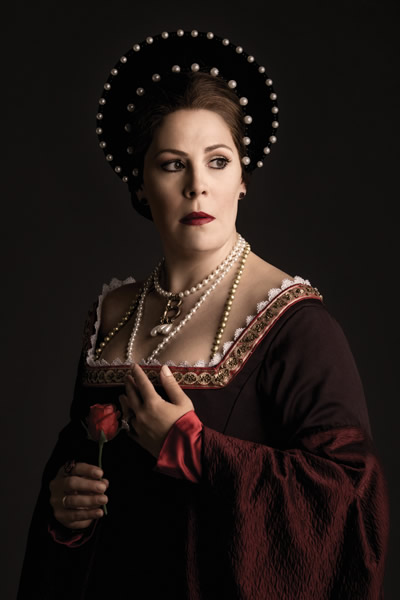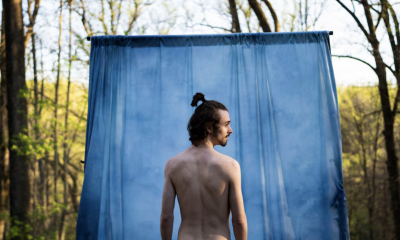Arts & Entertainment
Of queens and minions
Washington National Opera features high-stakes and high-jinks in new season
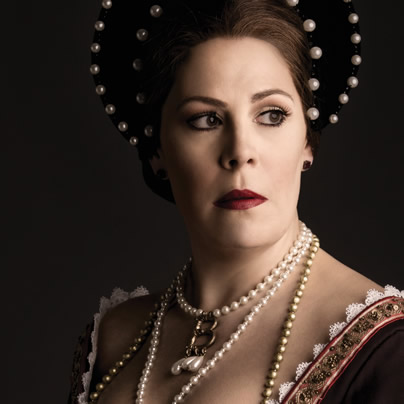
‘Anna Bolena’
Washington National Opera
Sept. 15-Oct. 6
‘Don Giovanni’
Sept. 20-Oct. 13
Kennedy Center
2700 F St., NW
$25-$300
202-467-4600
kennedy-center.org
From epic royals to legendary libertines, Washington National Opera’s 2012-2013 season openers are a perfect fit for capital city audiences mired in a presidential election year.
First out of the gate is Gaetano Donizetti’s “Anna Bolena,” opening Sept. 14. Starring soprano Sondra Radvanovsky in the title role, the 19th-century opera follows the waning days of Anne Boleyn’s reign as Queen of England before being found guilty of adultery and beheaded.
“The opera is amazing dramatically,” says Radvanovsky, “and the music on top of it is just any soprano’s dream.”
Radvanovsky made a name for herself in the dramatic soprano repertoire of Giuseppe Verdi, but in recent years, she started branching out to explore other roles. Often compared to renowned soprano Maria Callas, who revived “Anna Bolena” from near obscurity in the 1950s, Radvanovsky’s voice possess a full-blooded timbre that’s matched by a riveting acting sense, according to her director for this production, Stephen Lawless.
“The intelligence which she brings to the playing of Anna is thrilling and moving,” says Lawless, who’s gay. “She always puts her abilities to the service of the job in hand.”
The opera culminates in a heartbreaking and defiant mad scene for Anna, yet both Lawless and Radvanovsky feel this isn’t the garden-variety hysteria portrayed in other operas, including the same composer’s calling card “Lucia di Lammermoor.”
“She’s emotionally naked,” Radvanovsky says of the queen. “The easy card to put down is to play cuckoo-for-Cocoa-Puffs. Anna Bolena isn’t crazy; it’s just too much for her to handle, and I think that’s something that more people can relate to.”
“She finds inner resources that I suspect she never knew she had,” Lawless says about the doomed queen, adding that her death transforms tragedy into “something glorious.”
DESPITE THE TUDOR-ERA setting for the story, the opera’s themes bear striking relevance to today’s social and political climate. Donizetti contrasts Anna’s undoing with the ascendency of the social-climbing Jane Seymour, who has caught the eye of Henry VIII and will become queen after Anna’s decapitation. However, Anna’s betrayal of a true love from girlhood haunts her throughout out the story, reminding Jane Seymour and audiences that dreams of power can’t buy happiness.
“I started singing when I was 11,” says Radvanovsky. “When I was 18 years old, I said, ‘By the time, I’m 30, I’m going to be singing at the Met.’” This dream came true for the singer, as did her chance to sing with legendary tenor Placido Domingo. She sang with him during “Cyrano de Bergerac” on her 35th birthday, causing her to ask the older legend what she should do now that she’d accomplished her goals.
“He told me, ‘Oh, Sondra. You must go get a new dream.’”
Now in her 40s, Radvanovsky feels that anyone, from the American people trying to choose a president to a young girl aspiring to be queen of 16th-century England, needs to focus on the moment at hand instead of an unpredictable future.
“If [Anna] had lived in the moment, she would have seen that she wasn’t in love with [Henry], but she was looking a year ahead. We are looking into politics in the same way. We put so much hope in these dreams, hoping that Obama or whoever continues down the road we want.”
Lawless, a British native, sees the opera’s connection to today’s audience in a slightly darker hue, recounting how Russian President Vladimir Putin visited the United Kingdom during the recent Olympics. While there, he was asked about Pussy Riot, the female punk band who staged a protest act against Putin weeks before his recent election to the presidency.
“He said, ‘I hope the courts will be lenient with her,’” remembers Lawless, “and that’s exactly a Henry [VIII] statement. It’s that kind of abuse of power that gives this piece its ironic resonance. Henry’s abuse of power should make you as angry as the Pussy Riot thing.”
WASHINGTON NATIONAL OPERA’S next piece, Mozart’s “Don Giovanni,” follows close on the heels of “Anna Bolena” and opens Sept. 20. The infamous womanizer of the title gets his karmic comeuppance by opera’s end, attended throughout by his long-suffering servant, Leporello, played by gay bass-baritone Andrew Foster-Williams.
“I have played it once before, where he was very dark,” he says of the character. “I’ve since come to realize that’s not right. It needs to be multi-layered. We need to remember that it’s a ‘dramma giocoso’ — a dark comedy.”
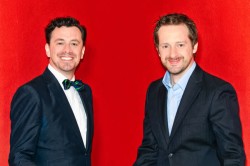
Paul (left) and Andrew Foster-Williams. Andrew plays Leporello in Washington National Opera’s production of Mozart’s ‘Don Giovanni.’ (Photo courtesy WNO)
The singer travels the world with his partner, photographer Paul Foster-Williams, who grew into an avid opera devotee because of his 14-year relationship with Andrew.
“I didn’t come from an opera background,” Paul says. “Now, I would do anything to go and see opera. It gives you the most returns in any art form.”
Paul compares opera with baseball, a realization he came to after going to see a Nationals game while staying in D.C. last spring for Andrew’s turn in “Werther.”
“I had no idea what was going on,” Paul says, laughing. “If you go to the football or soccer game and you don’t know the rules, you might not ever go to another game. It’s the same with opera. The more you experience, the more you get it, the more you will be come absolutely addicted to it, I promise.”
“The reasons people enjoy baseball is because they understand the rules,” Andrew adds. “They learned the rules, therefore they understand the skill of the players.”
The charming British couple hastens to add that opera is performed with translation surtitles projected above the stage, so no one need sit through hours of unintelligible bellowing.
THE FOSTER-WILLIAMSES are clearly a couple who have their own rules down pat. They say they’ve had to develop particular ways of living a life that’s eternally on the road.
“We land in a place,” says Paul. “Andrew goes out and gets provisions. I try to make the apartment feel like a home. We don’t speak to each other at least for a couple of hours.”
“If you’re going to have an argument, it’s then,” Andrew concurs.
“I think some people would end up killing each other,” says Paul. “We’re very lucky. Other people go to separate jobs, and they have separate things to share. What we’re sharing is the discovery of different places together.”
Some productions settle them in a city for a couple of months, while others find them hopping four continents in one week, as it did last spring. After finishing up in D.C., they went to London, Hong Kong and finally Sydney, Australia, which was locked in the grips of winter.
“We had to buy new clothes and leave some new clothes,” Andrew says.
Despite the chaos, the couple remains passionately committed to the arts. Paul’s photography has had to take on a new character, as long-term projects are out of the question now, so he ends up photographing the artists Andrew works with as well as the city locations Paul explores during his partner’s long rehearsal hours.
“Experiencing so much music traveling with Andrew, I think I understand singers well. Singers adapt to each evening, each audience, the atmosphere that evening. It’s so organic, it’s so alive all the time.”
Andrew sums up the role of the artist as an obligation to restoring the humanity to operatic characters.
“This is about making opera real again. The fate of it rests in the hands of the artists singing it.”
Books
‘The Director’ highlights film director who collaborated with Hitler
But new book omits gay characters, themes from Weimar era

‘The Director’
By Daniel Kehlmann
Summit Books, 2025
Garbo to Goebbels, Daniel Kehlmann’s historical novel “The Director” is the story of Austrian film director G.W. Pabst (1885-1967) and his descent down a crooked staircase of ambition into collaboration with Adolph Hitler’s film industry and its Minister of Propaganda Joseph Goebbels. Kehlmann’s historical fiction is rooted in the world of Weimar German filmmaking and Nazi “Aryan” cinema, but it is a searing story for our challenging time as well.

Pabst was a legendary silent film director from the Weimar Republic’s Golden Era of filmmaking. He “discovered” Greta Garbo; directed silent screen star Louise Brooks; worked with Hitler’s favored director Leni Riefenstahl (“Triumph of the Will”); was a close friend of Fritz Lang (“Metropolis”); and lived in Hollywood among the refugee German film community, poolside with Billy Wilder (“Some Like it Hot”) and Fred Zinnemann (“High Noon”) — both of whose families perished in the Holocaust.
Yet, Pabst left the safety of a life and career in Los Angeles and returned to Nazi Germany in pursuit of his former glory. He felt the studios were giving him terrible scripts and not permitting him to cast his films as he wished. Then he received a signal that he would be welcome in Nazi Germany. He was not Jewish.
Kehlmann, whose father at age 17 was sent to a concentration camp and survived, takes the reader inside each station of Pabst’s passage from Hollywood frustration to moral ruin, making the incremental compromises that collectively land him in the hellish Berlin office of Joseph Goebbels. In an unforgettably phantasmagoric scene, Goebbels triples the stakes with the aging filmmaker, “Consider what I can offer you….a concentration camp. At any time. No problem,” he says. “Or what else…anything you want. Any budget, any actor. Any film you want to make.” Startled, paralyzed and seduced by the horror of such an offer, Pabst accepts not with a signature but a salute: “Heil Hitler,” rises Pabst. He’s in.
The novel develops the disgusting world of compromise and collaboration when Pabst is called in to co-direct a schlock feature with Hitler’s cinematic soulmate Riefenstahl. Riefenstahl, the “Directress” is making a film based on the Fuhrer’s favorite opera. She is beautiful, electric and beyond weird playing a Spanish dancer who mesmerizes the rustic Austrian locals with her exotic moves. The problem is scores of extras will be needed to surround and desire Fraulein Riefenstahl. Mysteriously, the “extras” arrive surprising Pabst who wonders where she had gotten so many young men when almost everyone was on the front fighting the war. The extras were trucked in from Salzburg, he is told, “Maxglan to be precise.” He pretends not to hear. Maxglan was a forced labor camp for “racially inferior” Sinti and Roma gypsies, who will later be deported from Austria and exterminated. Pabst does not ask questions. All he wants is their faces, tight black and white shots of their manly, authentic, and hungry features. “You see everything you don’t have,” he exhorts the doomed prisoners to emote for his camera. Great art, he believes, is worth the temporal compromises and enticements that Kehlmann artfully dangles in the director’s face. And it gets worse.
One collaborates in this world with cynicism born of helpless futility. In Hollywood, Pabst was desperate to develop his own pictures and lure the star who could bless his script, one of the thousands that come their way. Such was Greta Garbo, “the most beautiful woman in the world” she was called after being filmed by Pabst in the 1920s. He shot her close-ups in slow motion to make her look even more gorgeous and ethereal. Garbo loved Pabst and owed him much, but Kehlmann writes, “Excessive beauty was hard to bear, it burned something in the people around it, it was like a curse.”
Garbo imagined what it would be like to be “a God or archangel and constantly feel the prayers rising from the depths. There were so many, there was nothing to do but ignore them all.” Fred Zinnemann, later to direct “High Noon”, explains to his poolside guest, “Life here (in Hollywood) is very good if you learn the game. We escaped hell, we ought to be rejoicing all day long, but instead we feel sorry for ourselves because we have to make westerns even though we are allergic to horses.”
The texture of history in the novel is rich. So, it was disappointing and puzzling there was not an original gay character, a “degenerate” according to Nazi propaganda, portrayed in Pabst’s theater or filmmaking circles. From Hollywood to Berlin to Vienna, it would have been easy to bring a sexual minority to life on the set. Sexual minorities and gender ambiguity were widely presented in Weimar films. Indeed, in one of Pabst’s films “Pandora’s Box” starring Louise Brooks there was a lesbian subplot. In 1933, when thousands of books written by, and about homosexuals, were looted and thrown onto a Berlin bonfire, Goebbels proclaimed, “No to decadence and moral corruption!” The Pabst era has been de-gayed in “The Director.”
“He had to make films,” Kehlmann cuts to the chase with G.W. Pabst. “There was nothing else he wanted, nothing more important.” Pabst’s long road of compromise, collaboration and moral ruin was traveled in small steps. In a recent interview Kehlmann says the lesson is to “not compromise early when you still have the opportunity to say ‘no.’” Pabst, the director, believed his art would save him. This novel does that in a dark way.
(Charles Francis is President of the Mattachine Society of Washington, D.C., and author of “Archive Activism: Memoir of a ‘Uniquely Nasty’ Journey.”)
The Blade may receive commissions from qualifying purchases made via this post.
Theater
Swing actor Thomas Netter covers five principal parts in ‘Clue’
Unique role in National Theatre production requires lots of memorization
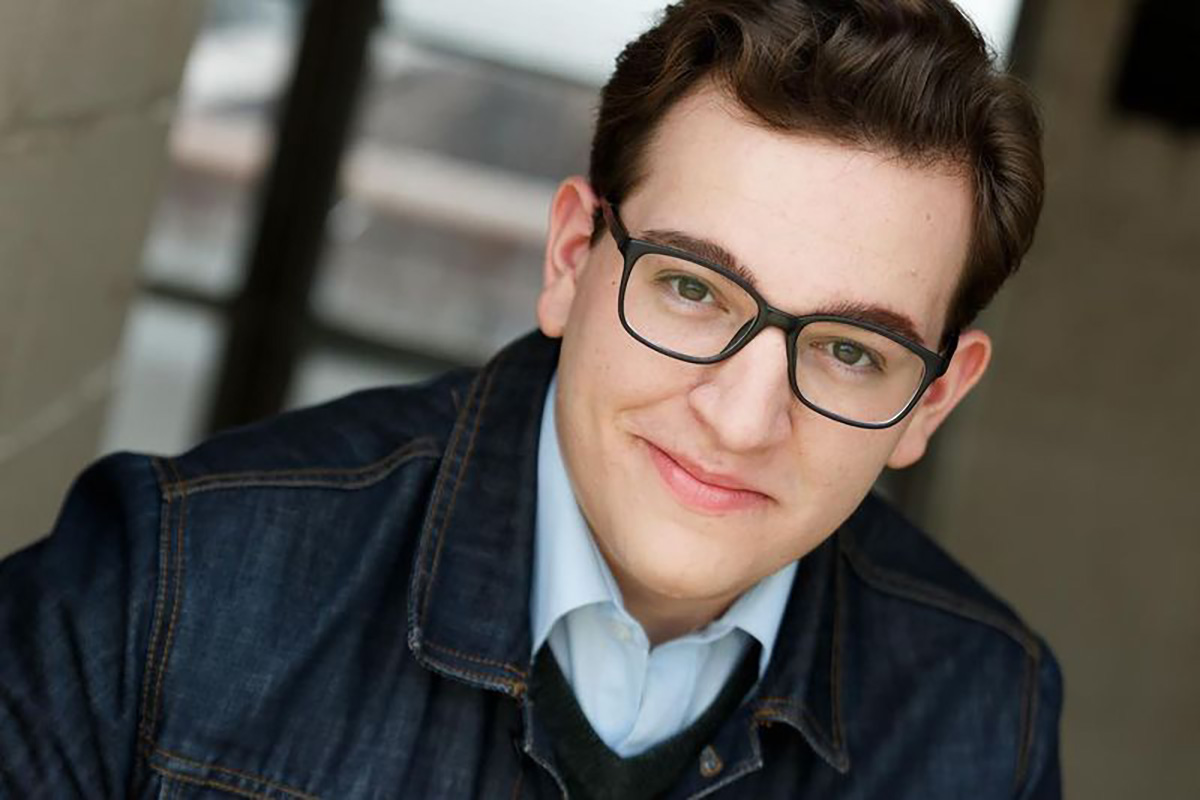
‘Clue: On Stage’
Jan. 27-Feb. 1
The National Theatre
1321 Pennsylvania Ave., N.W.
thenationaldc.com
Out actor Thomas Netter has been touring with “Clue” since it opened in Rochester, New York, in late October, and he’s soon settling into a week-long run at D.C.’s National Theatre.
Adapted by Sandy Rustin from the same-titled 1985 campy cult film, which in turn took its inspiration from the popular board game, “Clue” brings all the murder mystery mayhem to stage.
It’s 1954, the height of the Red Scare, and a half dozen shady characters are summoned to an isolated mansion by a blackmailer named Mr. Boddy where things go awry fairly fast. A fast-moving homage to the drawing room whodunit genre with lots of wordplay, slapstick, and farce, “Clue” gives the comedic actors a lot to do and the audience much to laugh at.
When Netter tells friends that he’s touring in “Clue,” they inevitably ask “Who are you playing and when can we see you in it?” His reply isn’t straightforward.
The New York-based actor explains, “In this production, I’m a swing. I never know who’ll I play or when I’ll go on. Almost at any time I can be called on to play a different part. I cover five roles, almost all of the men in the show.”
Unlike an understudy who typically learns one principal or supporting role and performs in the ensemble nightly, a swing learns any number of parts and waits quietly offstage throughout every performance just in case.
With 80 minutes of uninterrupted quick, clipped talk “Clue” can be tough for a swing. Still, Netter, 28, adds, “I’m loving it, and I’m working with a great cast. There’s no sort of “All About Eve” dynamic going on here.”
WASHINGTON BLADE: Learning multiple tracks has got to be terrifying.
THOMAS NETTER: Well, there certainly was a learning curve for me. I’ve understudied roles in musicals but I’ve never covered five principal parts in a play, and the sheer amount of memorization was daunting.
As soon as I got the script, I started learning lines character by character. I transformed my living room into the mansion’s study and hallway, and got on my feet as much as I could and began to get the parts into my body.
BLADE: During the tour, have you been called on to perform much?
NETTER: Luckily, everyone has been healthy. But I was called on in Pittsburgh where I did Wadsworth, the butler, and the following day did the cop speaking to the character that I was playing the day before.
BLADE: Do you dread getting that call?
NETTER: Can’t say I dread it, but there is that little bit of stage fright involved. Coming in, my goal was to know the tracks. After I’d done my homework and released myself from nervous energy, I could go out and perform and have fun. After all, I love to act.
“Clue” is an opportunity for me to live in the heads of five totally different archetype characters. As an actor that part is very exciting. In this comedy, depending on the part, some nights it’s kill and other nights be killed.
BLADE: Aside from the occasional nerves, would you swing again?
NETTER: Oh yeah, I feel I’m living out the dream of the little gay boy I once was. Traveling around getting a beat on different communities. If there’s a gay bar, I’m stopping by and meeting interesting and cool people.
BLADE: Speaking of that little gay boy, what drew him to theater?
NETTER: Grandma and mom were big movie musical fans, show likes “Singing in the Rain,” “Meet Me in St. Louis.” I have memories of my grandma dancing me around the house to “Shall We Dance?” from the “King and I” She put me in tap class at age four.
BLADE: What are your career highlights to date?
NETTER: Studying the Meisner techniqueat New York’sNeighborhood Playhouse for two years was definitely a highlight. Favorite parts would include the D’Ysquith family [all eight murder victims] in “A Gentleman’s Guide to Love & Murder,” and the monstrous Miss Trunchbull in “Matilda.”
BLADE: And looking forward?
NETTER: I’d really like the chance to play Finch or Frump in Frank Loesser’s musical comedy “How to Succeed in Business Without Really Trying.”
BLADE: In the meantime, you can find Netter backstage at the National waiting to hear those exhilarating words “You’re on!”
Movies
A ‘Battle’ we can’t avoid
Critical darling is part action thriller, part political allegory, part satire
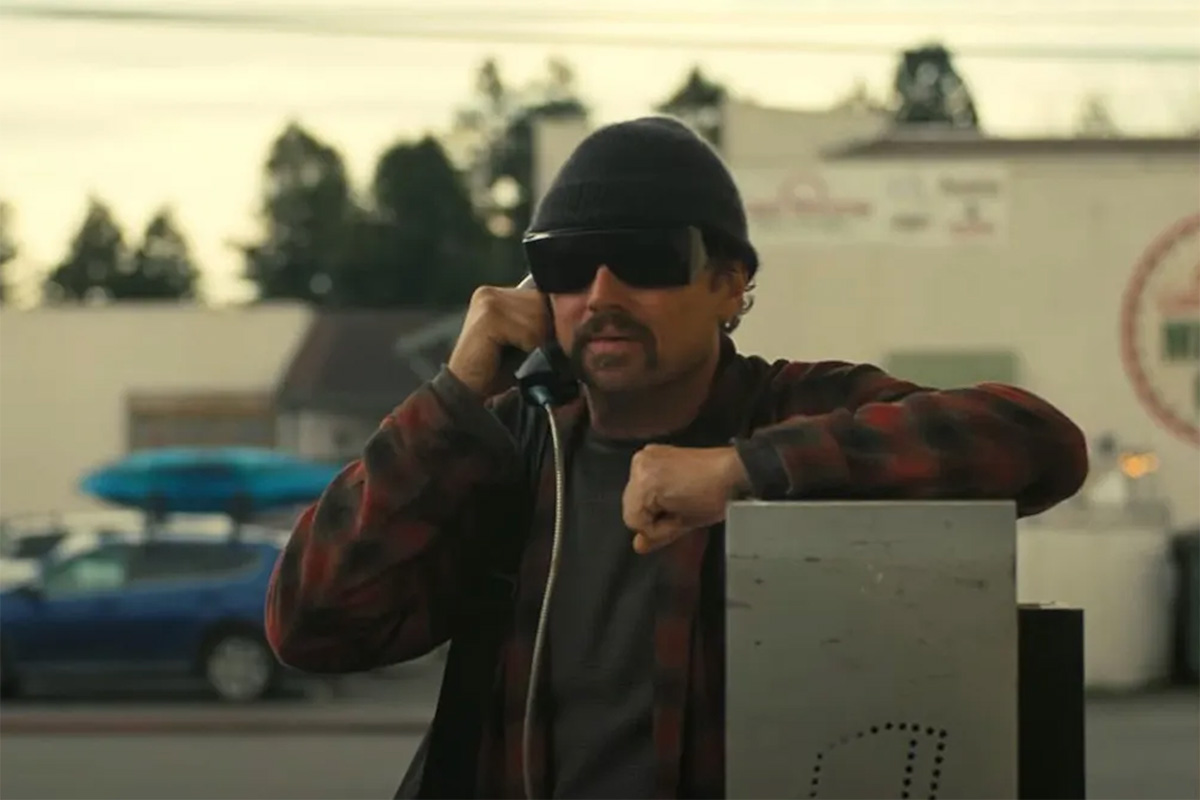
When Paul Thomas Anderson’s “One Battle After Another” debuted on American movie screens last September, it had a lot of things going for it: an acclaimed Hollywood auteur working with a cast that included three Oscar-winning actors, on an ambitious blockbuster with his biggest budget to date, and a $70 million advertising campaign to draw in the crowds. It was even released in IMAX.
It was still a box office disappointment, failing to achieve its “break-even” threshold before making the jump from big screen to small via VOD rentals and streaming on HBO Max. Whatever the reason – an ambivalence toward its stars, a lack of clarity around what it was about, divisive pushback from both progressive and conservative camps over perceived messaging, or a general sense of fatigue over real-world events that had pushed potential moviegoers to their saturation point for politically charged material – audiences failed to show up for it.
The story did not end there, of course; most critics, unconcerned with box office receipts, embraced Anderson’s grand-scale opus, and it’s now a top contender in this year’s awards race, already securing top prizes at the Golden Globe and Critics’ Choice Awards, nominated for a record number of SAG’s Actor Awards, and almost certain to be a front runner in multiple categories at the Academy Awards on March 15.
For cinema buffs who care about such things, that means the time has come: get over all those misgivings and hesitations, whatever reasons might be behind them, and see for yourself why it’s at the top of so many “Best Of” lists.
Adapted by Anderson from the 1990 Thomas Pynchon novel “Vineland,” “One Battle” is part action thriller, part political allegory, part jet-black satire, and – as the first feature film shot primarily in the “VistaVision” format since the early 1960s – all gloriously cinematic. It unspools a near-mythic saga of oppression, resistance, and family bonds, set in an authoritarian America of unspecified date, in which a former revolutionary (Leonardo DiCaprio) is attempting to raise his teenage daughter (Chase Infiniti) under the radar after her mother (Teyana Taylor) betrayed the movement and fled the country. Now living under a fake identity and consumed by paranoia and a weed habit, he has grown soft and unprepared when a corrupt military officer (Sean Penn) – who may be his daughter’s real biological father – tracks them down and apprehends her. Determined to rescue her, he reconnects with his old revolutionary network and enlists the aid of her karate teacher (Benicio Del Toro), embarking on a desperate rescue mission while her captor plots to erase all traces of his former “indiscretion” with her mother.
It’s a plot straight out of a mainstream action melodrama, top-heavy with opportunities for old-school action, sensationalistic violence, and epic car chases (all of which it delivers), but in the hands of Anderson – whose sensibilities always strike a provocative balance between introspection, nostalgia, and a sense of apt-but-irreverent destiny – it becomes much more intriguing than the generic tropes with which he invokes to cover his own absurdist leanings.
Indeed, it’s that absurdity which infuses “One Battle” with a bemusedly observational tone and emerges to distinguish it from the “action movie” format it uses to relay its narrative. From DiCaprio (whose performance highlights his subtle comedic gifts as much as his “serious” acting chops) as a bathrobe-clad underdog hero with shades of The Dude from the Coen Brothers’ “The Big Liebowski,” to the uncomfortably hilarious creepy secret society of financially elite white supremacists that lurks in the margins of the action, Anderson gives us plenty of satirical fodder to chuckle about, even if we cringe as we do it; like that masterpiece of too-close-to-home political comedy, Stanley Kubrick’s 1964 nuclear holocaust farce “Dr. Strangelove,” it offers us ridiculousness and buffoonery which rings so perfectly true in a terrifying reality that we can’t really laugh at it.
That, perhaps, is why Anderson’s film has had a hard time drawing viewers; though it’s based on a book from nearly four decades ago and it was conceived, written, and created well before our current political reality, the world it creates hits a little too close to home. It imagines a roughly contemporary America ruled by a draconian regime, where immigration enforcement, police, and the military all seem wrapped into one oppressive force, and where unapologetic racism dictates an entire ideology that works in the shadows to impose its twisted values on the world. When it was conceived and written, it must have felt like an exaggeration; now, watching the final product in 2026, it feels almost like an inevitability. Let’s face it, none of us wants to accept the reality of fascism imposing itself on our daily lives; a movie that forces us to confront it is, unfortunately, bound to feel like a downer. We get enough “doomscrolling” on social media; we can’t be faulted for not wanting more of it when we sit down to watch a movie.
In truth, however, “One Battle” is anything but a downer. Full of comedic flourish, it maintains a rigorous distance that makes it impossible to make snap judgments about its characters, and that makes all the difference – especially with characters like DiCaprio’s protective dad, whose behavior sometimes feels toxic from a certain point of view. And though it’s a movie which has no qualms about showing us terrifying things we would rather not see, it somehow comes off better in the end than it might have done by making everything feel safe.
“Safe” is something we are never allowed to feel in Anderson’s outlandish action adventure, even at an intellectual level; even if we can laugh at some of its over-the-top flourishes or find emotional (or ideological) satisfaction in the way things ultimately play out, we can’t walk away from it without feeling the dread that comes from recognizing the ugly truths behind its satirical absurdities. In the end, it’s all too real, too familiar, too dire for us not to be unsettled. After all, it’s only a movie, but the things it shows us are not far removed from the world outside our doors. Indeed, they’re getting closer every day.
Visually masterful, superbly performed, and flawlessly delivered by a cinematic master, it’s a movie that, like it or not, confronts us with the discomforting reality we face, and there’s nobody to save it from us but ourselves.

